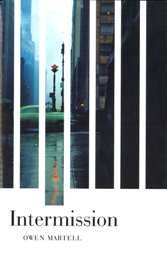
There’s no more erudite a jazz writer and critic than Brian Morton, in his use of language as a treasure chest, rather than a toolbox, his pen a much needed scalpel for criticism to root out the malign or facilitate the benign, his ear attuned to the kind of phrase you just wished you yourself could have come up with. He also, with the late Richard Cook in the Penguin Guide to Jazz, picked up on new music and then called the shots: like an expert in the paddock looking at how a young colt is shaping up or as an observer stating something obvious yet that no-one has hitherto chosen to express. Brian used to speak of “lost leaders", he probably still does; and would cite a range of greats who qualified: Krzysztof Komeda; Jan Johansson; and Eric Dolphy among them.
Bill Evans was hardly a lost leader but his bassist Scott LaFaro, who died aged 25 in a car crash, most definitely was in the Morton sense. Although no one can really be sure how his career in music would have unfolded, if following a remarkable series of concerts at the Village Vanguard in New York in 1961 he hadn’t died at such a young age. A new novel by Welsh writer Owen Martell takes up the facts and adds the fiction interpreting how LaFaro’s life affected Bill Evans and his family. Intermission takes its title from the crisis in Evans’ life as he was gripped by the trauma of the loss of LaFaro. Boyd Tonkin writing in The Independent says: “Like Evans’ own music, Intermission might prove simply too rarefied and intangible for some tastes; too disdainful of the sweet chords and easy resolutions of major-key story-telling.” He does compare the book favourably to Michael Ondaatje’s novel Coming through Slaughter about fabled trumpeter Buddy Bolden, another “lost leader”, whose memory has become putty in the hands of myth makers notably Wynton Marsalis.
Half-Blood Blues author Esi Edugyan reviewing Intermission in The Guardian today says more directly that Martell’s book is “an introspective, original novel”, and that it concerns family grief as much as it does the idolising of a musician. She also says: “At its best, this novel stands as a well-written lament… an apt tribute to a music so full of life that even a pause, a silence, can go down howling.”
Morton in the seclusion of bucolic windswept Argyll these days would add some prescient comments of his own on a book about loss and its overthrow of leadership: buffeting jazz in 1961 and an ocean of music since.
Stephen Graham